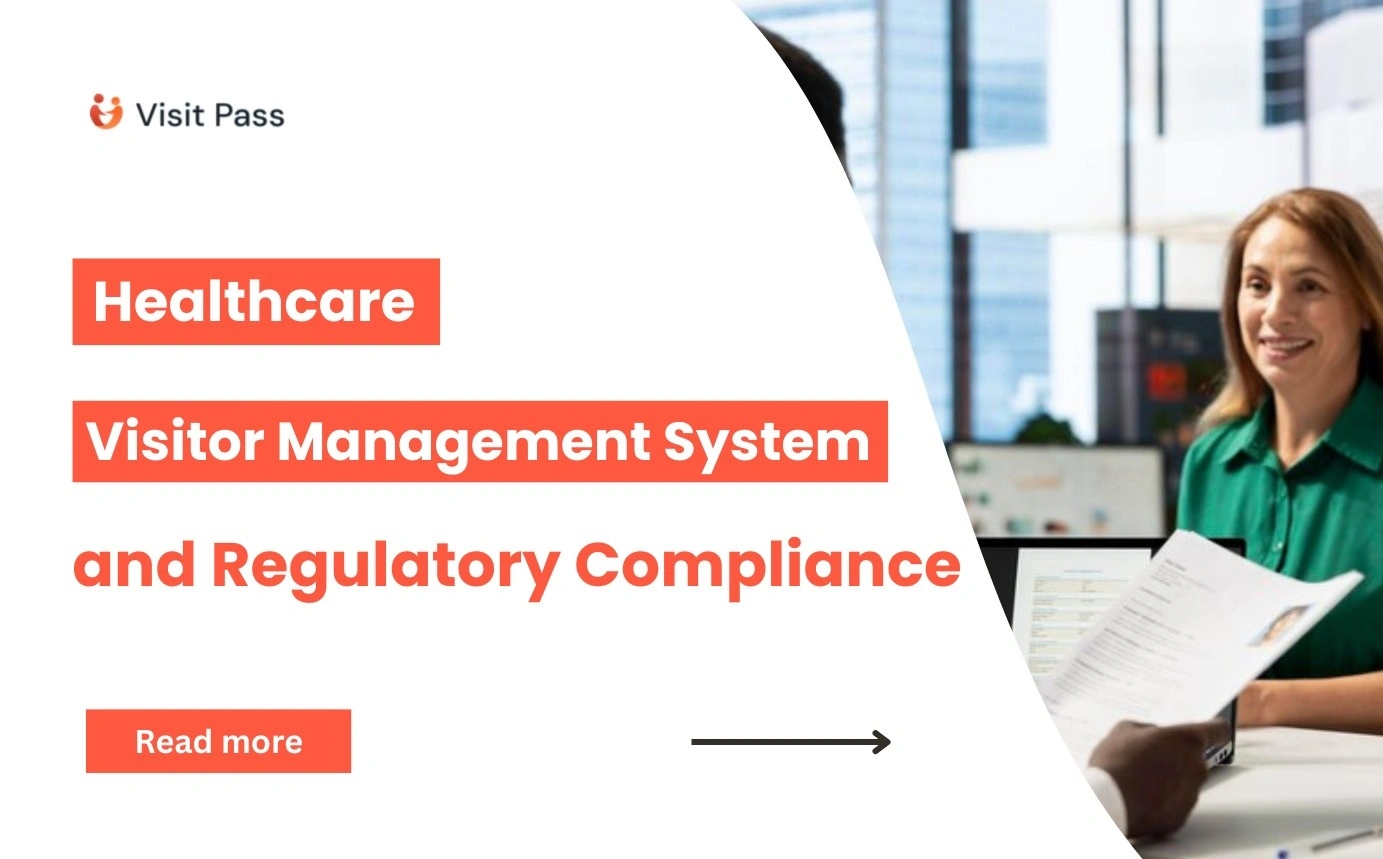In today’s healthcare environment, patient safety, data privacy, and regulatory compliance go hand in hand. Hospitals and clinics are designed to be welcoming spaces, but without a robust visitor management system, they risk exposing patients, staff, and sensitive data to potential threats.
From maternity wards to pharmacies, from ICUs to data centers, every area of a hospital requires strict oversight. As regulations like HIPAA in the U.S., GDPR in Europe, and local health laws globally become more stringent.
Healthcare providers need systems that ensure secure visitor check-in for hospitals while maintaining a smooth and respectful experience for patients and families that’s why The Visitor Management System for Healthcare: Enhancing Security, Compliance, and Patient Experience.
Let’s Dive Deep into – Healthcare Visitor Management and Regulatory Compliance
Why Visitor Management Matters in Healthcare
Hospitals handle a constant flow of patients, caregivers, vendors, and contractors every day. Without proper controls, unauthorized visitors can easily gain access to restricted areas or sensitive patient health information (PHI) leading to potential safety risks and compliance violations.
Some common gaps in traditional visitor management include:
✓ Manual paper logs that expose personal information and are hard to track
✓ Outdated access credentials that can be easily cloned
✓ Lack of visitor screening, risking weapons or contraband entering facilities
✓ Fragmented processes across different hospital departments
✓ No real-time monitoring, making it hard to know who is inside the hospital at any given moment
In today’s regulatory landscape, these outdated practices are no longer acceptable. Hospitals need modern systems that secure both people and data while meeting strict compliance standards.

Key Features of a Secure Visitor Check-In for Hospitals
Modern hospitals are adopting digital visitor management systems (VMS) designed to streamline the entire check-in process while enforcing compliance with HIPAA, GDPR, and other local regulations. Here are the must-have features to ensure both security and compliance:
1. Touchless, Digital Check-In
Using self-service kiosks or mobile check-in with QR codes, visitors can register seamlessly while minimizing physical contact crucial for infection control and safety.
2. ID Verification & Photo Badging
A secure VMS scans and verifies visitor IDs, issues custom badges, and clearly defines where each visitor is allowed to go, helping staff quickly identify unauthorized individuals.
3. Integration with EHR and Access Control Systems
Integration with Electronic Health Records (EHR) like Epic, Cerner, or Meditech allows hospitals to manage visitor permissions based on patient needs. Linking VMS with access control systems ensures visitors only enter authorized zones.
4. Real-Time Visitor Tracking
Know exactly who is in the building at any moment. Real-time dashboards and automated logs make audits faster and improve incident response times.
5. Watchlist Screening & Security Alerts
Automatically flag visitors on security watchlists, issue alerts for unauthorized attempts, and send real-time notifications to security teams in case of suspicious activity.
6. Privacy-First Data Handling
A compliant VMS encrypts all visitor information, ensuring data is stored securely and retained only as required by HIPAA, GDPR, or local laws.
Benefits of Regulatory-Compliant Visitor Management
Implementing a HIPAA-compliant visitor management system isn’t just about meeting regulations it transforms hospital security and operations.
- a) Enhanced Security: Restricts unauthorized access to critical areas and protects sensitive medical records.
- b) Improved Compliance: Simplifies audits by generating automated visitor logs and reports.
- c) Better Patient Experience: Smooth, digital check-ins reduce wait times and create a stress-free environment for families.
- d) Operational Efficiency: Automates front-desk processes, freeing up staff for higher-value tasks.
- e) Data Protection: Ensures patient and visitor information is handled safely and securely, maintaining public trust.
Regulatory Frameworks Hospitals Must Consider
Healthcare facilities must comply with multiple frameworks to ensure security and data privacy:
- 1. HIPAA (U.S.) → Governs patient data security and privacy.
- 2. GDPR (EU) → Ensures data protection for facilities operating in European regions.
- 3. Local Health Laws & Accreditation Standards → Includes Joint Commission, OSHA,
and CDC regulations.
A secure visitor management system helps hospitals centralize compliance, generate audit-ready reports, and reduce the risk of penalties.
HIPAA-Compliant Visitor Management: A Critical Requirement
HIPAA (Health Insurance Portability and Accountability Act) sets strict guidelines on how healthcare providers handle patient information. Any breach whether intentional or accidental can lead to hefty penalties and loss of patient trust.
A HIPAA-compliant visitor management system helps hospitals:
- ✓ Secure Patient Data → Ensures visitor data, patient health information, and records remain encrypted and protected.
- ✓ Restrict Unauthorized Access → Prevents individuals from entering areas where sensitive medical records or equipment are stored.
- ✓ Maintain Accurate Logs → Automatically records who enters and exits, along with timestamps, for easy audits and incident investigations.
- ✓ Enable Role-Based Permissions → Assigns access levels for family, vendors, contractors, or delivery personnel.
By adopting HIPAA-compliant solutions, hospitals strengthen both physical security and data privacy while meeting federal, state, and local regulatory mandates.
Conclusion
In an era where hospitals face rising security threats, stringent data privacy regulations, and growing patient expectations, adopting a HIPAA-compliant visitor management system is no longer optional; it’s essential.
Investing in the right visitor management system means creating a safer, smarter, and more compliant healthcare environment, one where security and care go hand in hand, this is How a Digital Visitor Management System can Improve Hospital Security highlights how advanced digital solutions strengthen hospital safety and ensure better control over visitor access.


